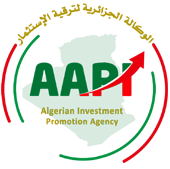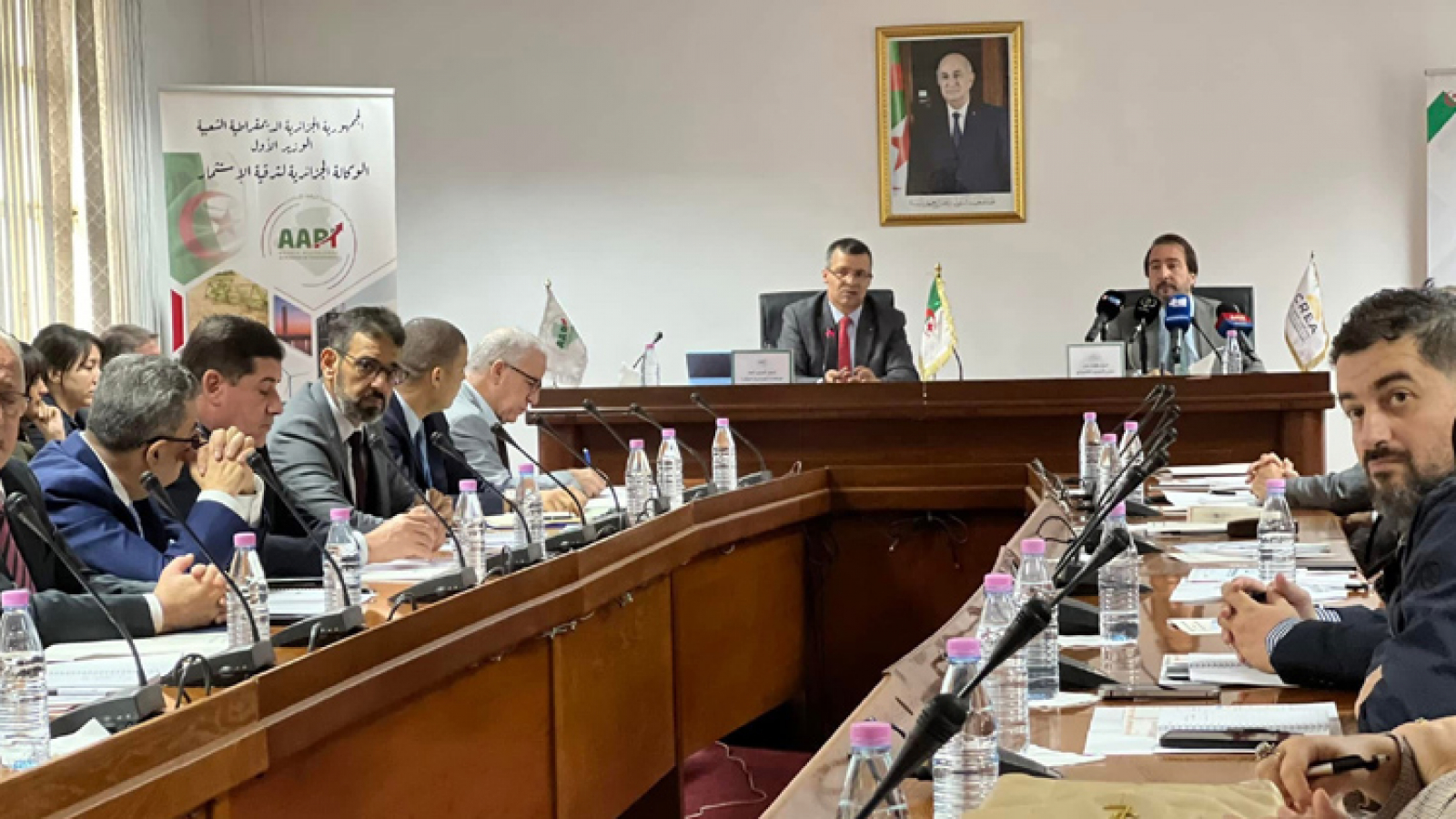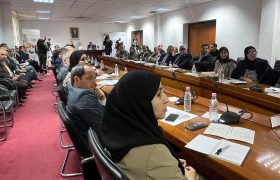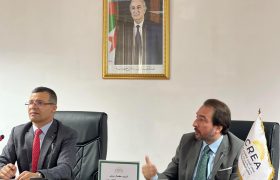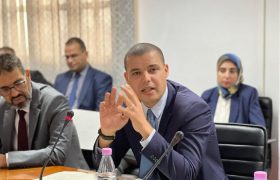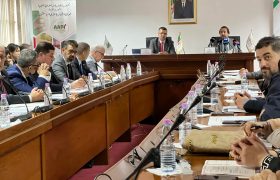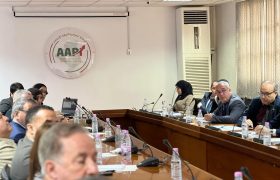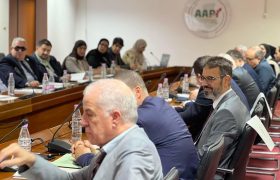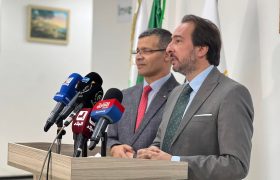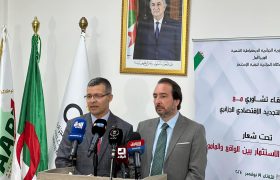November 19th, 2024
As part of efforts to identify mechanisms and pathways to achieve the objectives set by the President of the Republic, particularly the achievement of 20,000 investment projects during his second term, the Algerian Investment Promotion Agency organized a consultative meeting with the Algerian Economic Renewal Council (CREA) and affiliated economic operators. The meeting was co-chaired by the Agency’s Director General, Mr. Omar REKKACHE, and the Council’s President, Mr. Kamel MOULA.
The meeting, held under the theme “Improving the Investment Climate: Between Reality and Aspirations”, aimed to present a report on the Agency’s activities since its establishment. This included managing investment dedicated economic land. It also provided an opportunity to discuss requirements for achieving the outlined objectives, particularly those related to granting available land and identifying priority sectors to attract investments with high value added to the national economy in the short and medium terms.
During the opening session, the Director General praised the positive and fruitful cooperation between the Agency and the Council, through the implementation of the partnership agreement signed in March of the previous year, which resulted in the organization of numerous meetings. He also applauded the quick responses to various issues raised by the Agency.
The Director General also praised the significant dynamism observed in the registrations record at the Agency’s one-stop shops. In addition, he noted that this serves as evidence of the renewed confidence among investors in the genuine commitment of the President of the Republic to improving the investment climate and empowering companies, particularly private ones, to realize their investment projects.
The Director General showed confidence about achieving the goal of 20,000 investment projects – even before the expected deadline. The Agency, acting as the central pillar in the economic system connected to investment, will ensure effective coordination among all relevant authorities and their concerted efforts is essential, as each active sector in the equation must fulfill its responsibilities to achieve this goal.
According to the Agency’s Director General, this optimism is attributed to the number of projects registered over two years since the Agency’s establishment on November 1st, 2022, up to November 2024. The total reached 10,500 investment projects with a declared overall amount of 4,339 billion dinars. These projects are expected to generate more than 258,000 direct jobs, upon entering the operational phase
More than 50% of these projects have already entered the implementation phase, according to preliminary results of a survey conducted by the Agency, which also revealed that over 8% of the projects have reached the operational phase, motivating the agency to share success stories
Mr. Kamel MOULA praised the Agency’s openness and effective communication with economic partners. He reaffirmed the council’s commitment to collaboration and emphasized the importance of restoring trust between authorities and investors, leveraging geopolitical opportunities to enhance Algeria’s position in African and global markets.
For his part, Mr. Kamel MOULA appreciated this initiative, praising the Agency for its openness and effective communication with economic partners. He also reaffirmed the Council’s commitment to working closely with the Agency to highlight and convey the various needs of economic operators, which differ based on regions and sectors of activity.
Mr. MOULA also touched upon the importance of rebuilding trust between the authorities and investors, emphasizing the need to continue working to sustain this trust, and utilizing the present geopolitical context to solidify Algeria’s presence in African and global markets, as well as developing national products to achieve the dual objectives of reducing the import bill and increasing exports.
In a detailed presentation, the Director General highlighted the key activities undertaken by the Agency since its establishment to improve the services provided to investors, as well as the projects registered through the one-stop shops, and the outcomes of managing the economic land portfolio.
As part of managing investment dedicated economic land, he noted that the Agency had received 1,913 developed land assets with a total area of 2,191 hectares during the period from February 8th to November 14th, 2024, where land availability varies across Wilayas. Additionally, 782 land assets were displayed on the platform across 48 Wilayas, covering a total area of 1,100 hectares. The processing resulted in the granting of 461 land assets, while the total number of requests for the displayed assets reached 4,266.
Within the framework of addressing investors’ concerns, the Director General stated that the Agency had processed 1,182 requests related to the Investment Law provisions and examined 137 complaints regarding decisions for granting economic land. He noted that the Agency had received 113 notifications of decisions from the High National Commission for Investment Appeals, the majority of which were dismissed for failing to satisfy formal criteria. In this regard, the Agency will enhance its efforts to clarify grievance mechanisms and ensure their effective implementation, aiming to uphold and protect the rights of investors.
As for the implementation of the provisions of the economic land Law No. 23-17, the Agency has begun processing investors’ requests related to the conversion of concession acts into cession. To date, the Agency has received 100 such requests. Additionally, the Agency has received 76 requests for prior authorizations concerning the cession of properties subject to the right of pre-emption. These efforts are part of the Agency’s strategy to improve the management of economic land and enhance procedures that contribute to facilitating investment projects.
In conclusion, the Director General emphasized that achieving the desired goal depends on meeting a set of requirements that involve the collaboration of various economic relevant authorities, including employers’ organizations as a driving force for proposals. These requirements are closely linked to the fundamental pillars upon which the restoration of trust among economic operators is built, particularly:
First: The legal framework for investment: While relevant authorities in the investment sector have expressed satisfaction with the stability of the legislative system, there is a pressing need for regular updates of certain implementing regulations.
Second: Simplifying and facilitating procedures: Particularly through activating the role of the one-stop shop, as it is impossible to fully achieve the concept of a unified window without granting greater authority to representatives of various administrations, especially regarding essential permits for conducting activities, such as building permits, operating licenses, and others.
Third: Enhancing the simplification of procedures related to granting bank loans, working to reduce loan costs, and increasing the volume of economy directed loans, particularly for the private sector.
Fourth: Supporting the Agency’s real estate portfolio and facilitating access to economic land by providing 40,000 hectares of developed land, with an average of 8,000 hectares annually over a span of 5 years. This will be accompanied by continued efforts to simplify the related procedures within the framework of transparency and integrity, ensuring the land is directed toward viable investments and serious, prepared investors.
